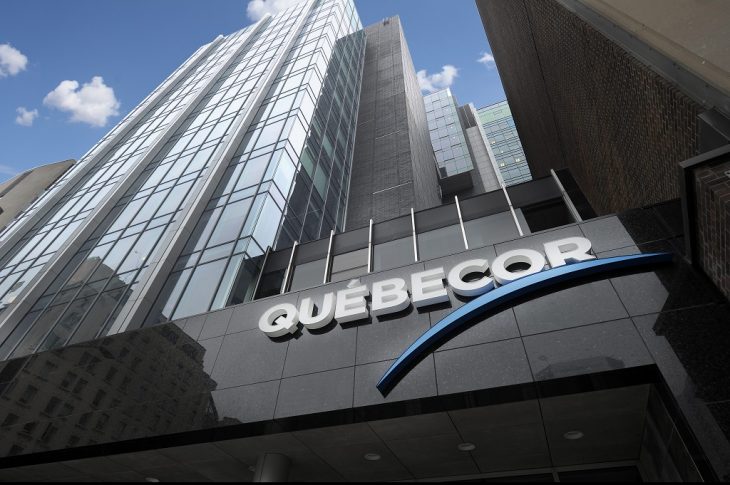
Company not happy with claims it’s the aggressor on price
By Ahmad Hathout
Quebecor executives said Thursday that aggressive competitor pricing on wireline and wireless and its own immobility on price adjustments have put unnecessary pressure on its revenues in the third quarter, saying they will have to make an annual increase come December.
In response to a question about lower cable revenues despite customer gains in the third quarter, Chief Financial Officer Hugues Simard said the company is “not pleased.”
“Most of the explanation, actually, for the lower revenues has to do with us not making an annual increase for internet and cable at the beginning of the year,” Simard said during a conference call with analysts. “We’ve changed our tune on this, and starting in December, there will be an annual increase being put in, so for 2025 most of that differential should be made up by that.”
The company reported telecom revenues of $1.4 billion in the three months that ended on September 30, a decrease of $25 million, or 1.8 per cent, compared to the same period last year. Net income was $190 million, about $20 million less over that same period. Media revenues were $155 million, down by roughly $11 million year-over-year. Telecommunications revenues were down by 2.2 per cent or $27 million, largely attributed to wireline services.
Despite this, the company gained 11,800 internet subscribers, a bump of nearly 1 per cent. Its big gain came in wireless, adding 132,100 net mobile lines, which represents the highest quarterly growth in its history and a gain of 3.4 per cent over the year. That both gave it a net increase in revenue-generating units in the quarter of 118,000, an increase of 1.6 per cent, and propelled the company past four million wireless subscribers.
In trying to reconcile gains in subs but a smothered average revenue per user (ARPU), Simard pointed to the aggressive pricing tactics of Bell, specifically its Primus and Distributel subsidiaries. Both Bell companies are offering download speeds of 500 Mbps for $45 per month right now in Ontario and Quebec.
“We think Bell’s aggression in cable or in wireline in Quebec is unwarranted and is, to be honest, blatantly stupid for everyone,” Simard said.
“We did not launch the price war in Quebec,” Simard offered. “For a few quarters, we didn’t even respond and we lost market share and we lost net adds; we were negative net adds on internet for a few quarters and yes, this quarter we responded more in-kind, but we never launched this war and we still believe this is at the level of maturity of the market in Quebec.
“It is not right, and it is not business,” he added. “It’s very tricky from a business standpoint to do what Bell is doing, because I think it’s hurting the entire business in Quebec, and now that we see that they’re going to Ontario, I think I feel a little bit worried about the wireline business in Ontario and then in the rest of Canada.”
Simard had similar feelings on the wireless side. Analysts have for consecutive periods wondered whether the company can sustain its ARPU being lower than its peers as it competes as the presumptive fourth player in the market and finds its bearings with Freedom.
But while regulators and others heap praise on the telecom for driving down prices in this segment, executives are conveying that observers are not getting the complete picture of what’s going on.
“Obviously we’ve been transparent with this, and since the acquisition of Freedom, we always said that there was an opportunity for us to disrupt the market that was inefficient and that was offering prices that were higher than the U.S. and higher than the industrialized world for telecom services,” Simard said.
“Now, that being said, I would put you and your colleagues as well to what the incumbents are doing, and they’re not doing this for their main brands, as you know, but they’re doing it through their [flanker] brands.”
He pointed to prices, including Rogers’s Chatr, which is offering 50 GB of data per month for $34, a buck cheaper than Freedom’s offer. And for Bell’s Lucky Mobile, 15 GB will put you back $29; for that price on Freedom, you are getting five gigabytes less.
And Quebecor’s competitors are not hiding this fact.
Rogers CEO Tony Staffieri said this quarter that Chatr has been competing effectively with Quebecor on price, as it tries to guide subscribers up a tier to the premium Rogers brand.
“So it’s a little bit annoying to be called the aggressor in English Canada,” Simard added.



